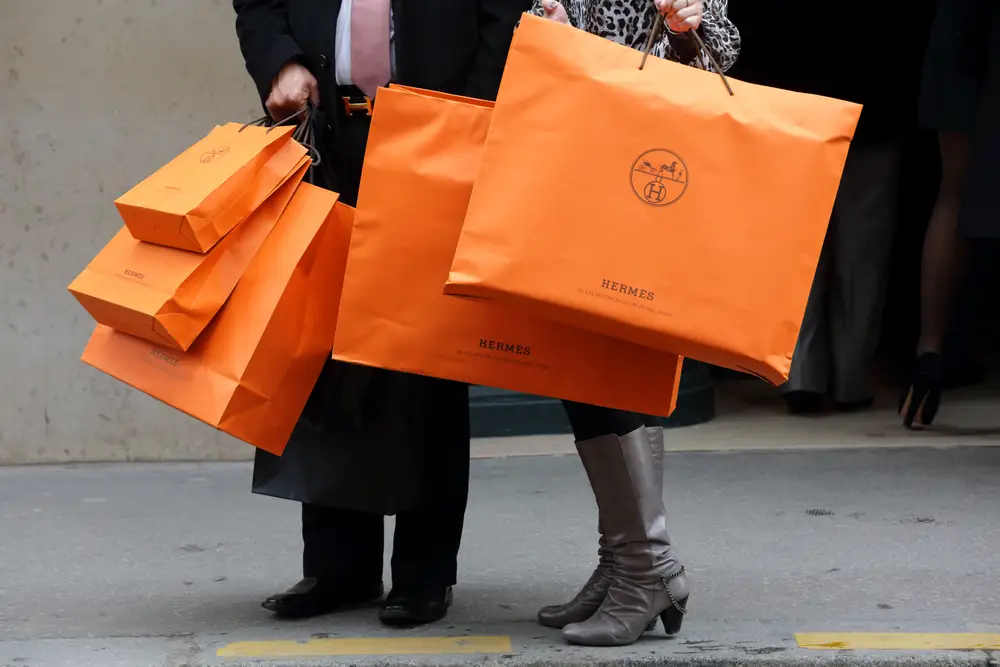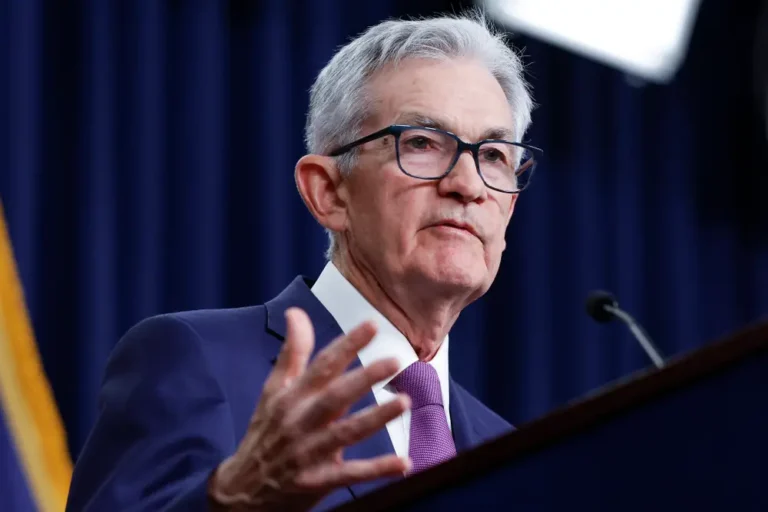Luxury stocks have gotten a huge boost from China’s stimulus this week

A couple walk with Hermes shopping bags as they leave an Hermes store in Paris March 21, 2013. Hermes on Thursday said operating margin last year reached its highest level since the French luxury group listed in 1993 on robust demand for its hand-crafted leather goods and printed silk scarves.
European luxury stocks rallied sharply this week as a wave of Chinese stimulus measures spurred hopes of more spending.
Shares of Hermes, Cartier-parent Richemont, and LVMH soared more than 15% over the five-day period.
In a rare press conference on Tuesday, three top Chinese officials announced a broad set of economic-stimulus measures, including interest-rate cuts, liquidity support and lower bank-reserve requirements.
The move sent stocks surging across the board, and proved especially promising for the luxury sector, which has struggled for months amid weak demand in China.
China’s consumers have been reluctant to spend in recent months, even as their disposable incomes have grown. Retail sales grew just 2.1% last month from a year before, coming in below economists’ forecasts of 2.5%.
European luxury brands cited that slowing demand in their most recent quarterly earnings reports. Burberry said its sales in mainland China declined 21% from the year before, while Hugo Boss said the Chinese market has proved “particularly challenging.”
On Monday, the day before the stimulus measures were announced, Bank of America analysts cut their price objectives on luxury stocks by an average of around 20%.
They also downgraded four luxury stocks to neutral, and another from neutral to underperform — leaving just three luxury stocks at buy ratings.
“Lower for longer revenue growth can be attributed to synchronised consumption weakness across US, EU and China (ie c.70% of revenues). There are green shoots in the US, whilst China weakness has just begun,” the analysts wrote in a Monday note.
Some of that decline in demand is a result of Chinese consumers shifting their big-ticket spending abroad, especially in Japan, where the weak yen helps Chinese shoppers’ money go further.
Now, it seems investors are banking on the stimulus measures to bring luxury spending back to the country.






